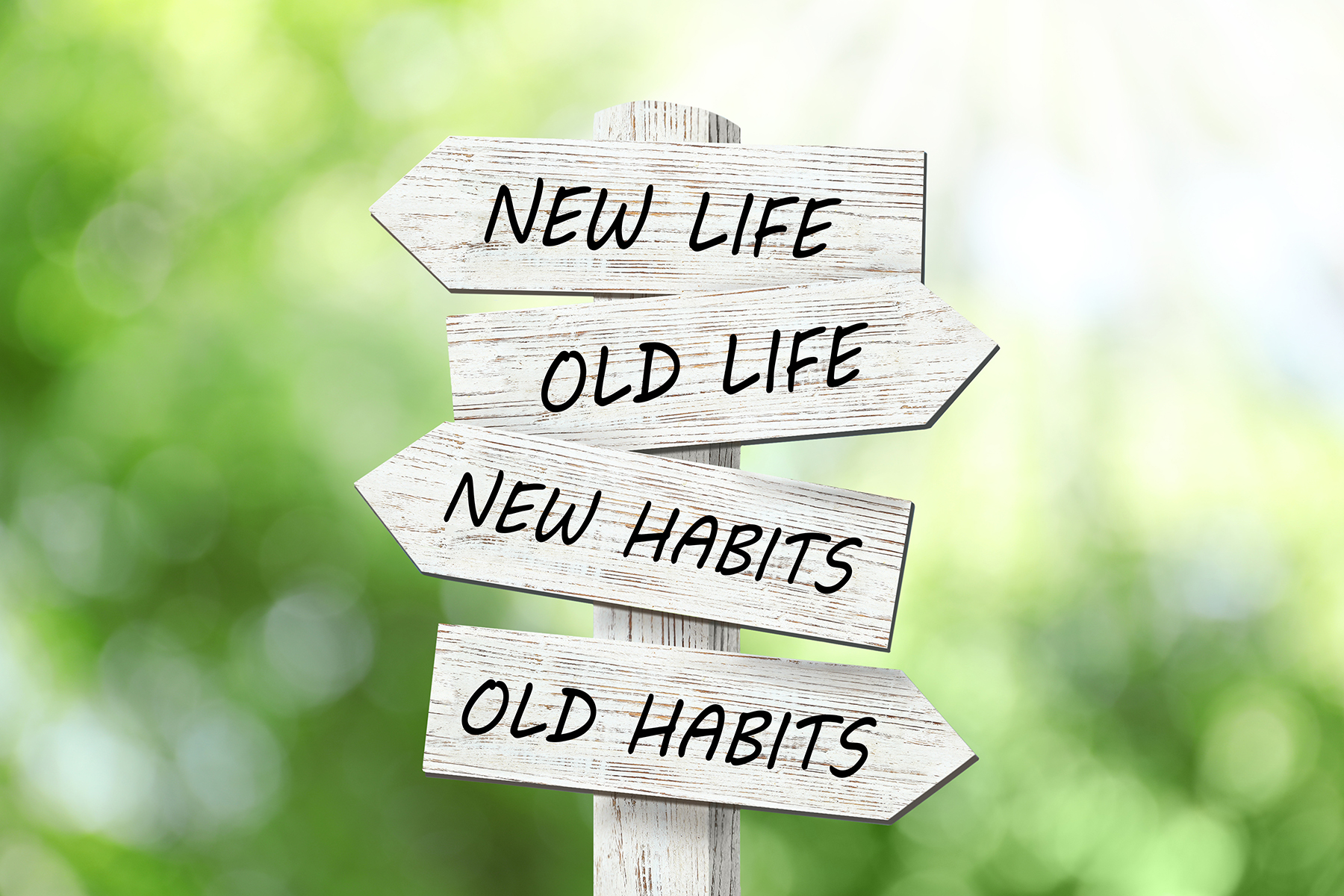January is a great time for a new start and many people decide to make a change for the better. If you’re making a big change, especially if it’s around addiction to alcohol, drugs or smoking – well done! Admitting you no longer want to be dependent on these damaging substances is the first step to giving them up for good. We wish you every luck on your journey of recovery, and are here to help you if you’re finding it hard to go it alone.
However, we wanted to make you aware that if you do have an addictive personality or identify as an addict, you are at greater risk of developing a so-called “cross addiction”, where you replace one addiction with another. This may not be right away and can seem totally different and unrelated, but an addiction to anything can be damaging and so you need to be aware of the issue, to ensure your new healthy habits, or your new lifestyle without using or drinking, doesn’t become compulsive and damaging too.
Various studies have shown that people who are addicted to one substance, were at higher risk of developing another addiction to a different substance which offered a similar response. We certainly see a correlation between our clients who are in recovery having a tendency to developing other addictions to substances or display compulsive behaviours before, during and after their treatment. We work with them to help them to spot the signs of cross addiction, as well as get to the root of the problem, rather than replacing one addiction with another.
Exercise Addiction
One common cross addiction when you give up alcohol or drugs is exercise addiction and/or disordered eating which can develop into an eating disorder. Exercise is an excellent tool in recovery, as it makes us feel good, fills times when you may have been drinking or using and offers a positive focus for our new lives without substance abuse. However, because exercise does release endorphins and can give a high, addicts in recovery can exercise excessively, which then causes problems for their health and wellbeing.
This is something that The Bridge’s co-founder Ali Silver understands all too well. “I was looking for a way to quieten the noise in my head, disconnect and essentially harm myself and turned to controlling my food and excessive exercise.
My eating disorder, whilst short lived, was severe. I am a perfectionist and being bound to the rules of restricted eating and exercise made me feel successful, in control and virtuous.
These rules became my best friend and my enemy at the same time and I no longer felt alone. However, just like drinking, taking drugs and dating bad boys, controlling my food just stopped working. I still felt empty inside and disconnected from my everybody, including my parents.
At first, recovery involved a ‘fake it until you make it’ mentality. I went to therapy, I attended my own meetings, I educated myself about addiction and mental illness. Most importantly, I found the strength to ask for help as I realised that I could not do it on my own.
Living life without my chosen addiction was always going to be the hardest challenge, alongside not acting out, thinking of others and taking responsibility. Those things don’t just suddenly get easier in recovery; they get harder, although in time, you realise you can cope and thrive even when you thought it impossible.”
Ali is a qualified eating disorder practitioner, nutritional therapist and a body positive personal trainer who helps clients at The Bridge develop a healthy relationship with food and exercise, to improve health and wellbeing and assist in the recovery journey, without going to the extreme.
What other common cross addictions do you need to watch out for?
You need to be careful about over indulging in anything which triggers a high. That can be a compulsive behaviour, or a substance such as a prescription medication.
If you are in recovery from drug or alcohol addiction beware of the potential to develop –
- A gambling addiction
- A shopping addiction
- Compulsive sexual behaviour
- An eating disorder or food addiction
Once you’ve identified a potential issue, or a tendency for compulsive behaviour during your recovery, many of the tools you’ve learnt to use for your drug or alcohol addiction can also be used to deal with this problem. Therapy can be helpful to make the connection between what caused the initial addiction and this secondary cross-addiction and tools such as CBT can also help you to alter these behaviours or thoughts around them.
How can we help?
Our private rehabilitation centre offers outpatient addiction treatment options through our dayhab programme and our online rehabilitation programme to support you through any issues with cross addiction, or to help you to continue with your recovery outside of a residential setting.
Our bespoke approach allows us to drill down to the real root of the problem during your stay and help you deal with any trauma or issues which caused your addiction. With extensive therapy and addiction treatment in our inpatient rehabilitation centre, our clients deal with their demons and are equipped with the tools to enable them to live a happy and full life without alcohol or drugs and protect them against future cross addictions wherever possible.
Please contact us to find out more how we can support you in your recovery via secondary treatment options, or tackle your addiction head on.




